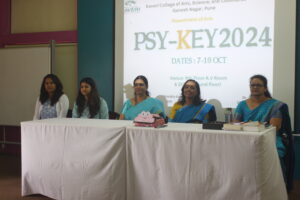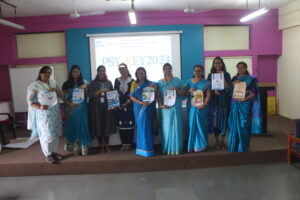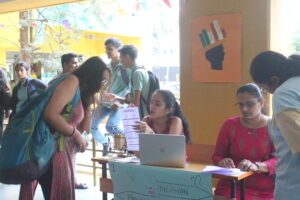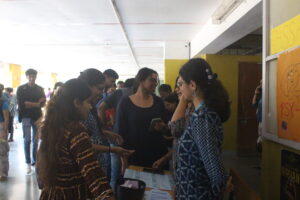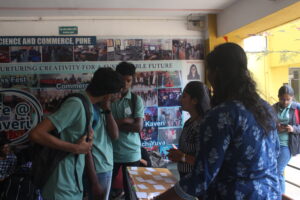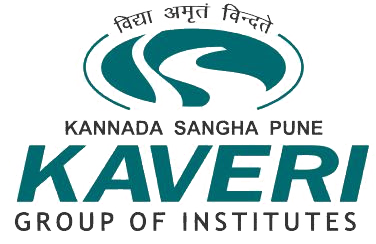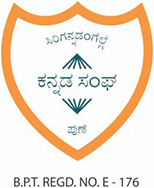Day 01 – Monday, 7th October: Psychology Bingo & Psych Bazaar
The Psy-Key event commenced with a formal inauguration, which generated significant excitement among students. The first activity took place in the AV room, featuring an engaging session of Psychology Bingo. This game encouraged participants to decode various mental health conditions and disorders in a bingo format, which made it both learning and enjoyable. The level of participation was remarkable, with many students expressing enthusiasm for the activity.
Simultaneously, in the stilts, we hosted Psych Bazaar, an initiative designed to offer psychological assessments to the general public at no cost. This segment featured a variety of psychological tests, including evaluations for mood, resilience, personality traits, and more. Participants were able to engage with student facilitators who guided them through the testing process, providing valuable insights into their psychological well-being.
Overall, the first day of Psy-Key was a success and had educational elements with interactive experiences, promoting awareness of mental health while encouraging active participation from students and the public alike.
Day 02 – Tuesday, 8th October: Treasure Hunt & Psych Bazaar
On the second day of the event, an exciting Treasure Hunt was organized on the ground floor. The clues were ingeniously arranged in a creative manner, providing participants with a stimulating challenge. This hunt was themed around Maslow’s Hierarchy of Needs, illustrating the progression from basic needs to the more advanced concept of self-actualization. By integrating this psychological theory into the treasure hunt, participants not only enjoyed the activity but also gained deeper insights into a fundamental concept in psychology.
In conjunction with the treasure hunt, Psych Bazaar continued on its second day, offering a variety of psychological assessments tailored to the needs of participants. This time, an expanded range of tests was made available, further enhancing the public’s understanding of psychological well-being.
The combination of the treasure hunt and Psych Baazar generated significant enthusiasm among participants, marking the day as a notable success. Overall, the events effectively engaged students and the general public, reinforcing the educational objectives of the event.
Day 03 – Wednesday, 9th October: Image Building Workshop
The Image Building Workshop was conducted by Ms. Poorva Joglekar – Creative Psychotherapist, and Ms. Samruddhi More, Counseling Psychologist and Dance Movement Therapy Practitioner [DMTP]. It helped participants connect with their inner self through various forms of creative expression emphasizing self-reflection and interpersonal communication. The primary goal of the workshop was to enable the participants, their feelings, through introspection and creative activities, leading to a deeper understanding of the self-image. By integrating movement, art, and group activities, the workshop encouraged personal growth and enhanced communications skills. Every participant actively engaged in the workshop. Through the creative process and group interaction, they developed a more profound understanding of themselves and how their inner image can be expressed and perceived by others.
As part of the event activities, a designated Brain Game Arena was set up on the ground floor, featuring various games and activities related to psychology and cognitive skills. This unique setup, created by students, focused on interactive games that challenged participants’ minds and encouraged self-reflection. The arena included a range of games, such as those based on “rasas” (emotional expressions), tests for identifying different personality types, memory challenges, and activities inspired by the “Inside Out” concept of emotions. Each game was thoughtfully designed to engage participants in exploring various psychological aspects, from emotion recognition to understanding memory and personality. The Brain Game Arena attracted the highest level of participation and enthusiasm among attendees. Its innovative approach not only provided entertainment but also sparked interest in psychology and self-discovery. Participants responded positively, engaging deeply with the activities, which added to the overall success and popularity of the event.
Day 04 – Thursday, 10th October: session titled Tool-Kits for Mental Health
In observance of World Mental Health Day, the college organized a thoughtful workshop centered to align with the universal focus, a session titled Tool-Kits for Mental Health was held, aiming to address the unique mental health challenges people face. Recognizing the importance of accessible mental health resources, this session was designed to equip participants with practical tools to manage mental well-being, fostering awareness, and encouraging self-care and support within the campus community.
The session was led by Mugdha Shivapurkar, a skilled Art Psychotherapist and Co-founder of The Secret Ingredient Mental Healthcare, a mental health organization dedicated to holistic approaches to emotional wellness. Through her expertise, the session provided students with a comprehensive understanding of mental health essentials, emphasizing the importance of mental health care in their everyday lives.
The workshop began with engaging, interactive activities, encouraging participants to work in small groups to explore key concepts related to mental health. Students created discussion charts and explored their perceptions of mental health and mental illness, highlighting the distinct differences between the two. Through group discussions, students examined the nuances of mental health terminology and were reminded of the impact of using sensitive language accurately and respectfully.
Following this introduction, Mugdha guided participants through the concept of distress and its signs, emphasizing how important it is to identify early indicators. Students then explored strategies to offer meaningful support to friends and peers, following a structured ABC approach to understanding and managing distress. A gentle and compassionate approach was used to discuss preventive mental health measures, including addressing self-harm awareness with care and discretion, equipping students with strategies to offer and seek help when needed.
The workshop concluded with a gratitude circle, where students shared reflections and acknowledged each other’s presence and support, closing with a group check-in on feelings and personal takeaways from the session. This activity reinforced a sense of community and underscored the importance of maintaining mental health together, leaving students with practical insights and a renewed sense of mental well-being.
